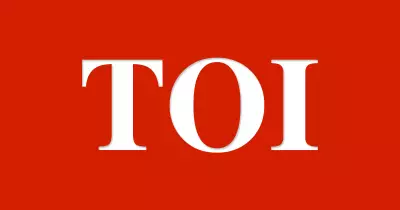
In a dramatic turn of events at the White House, US President Donald Trump openly threatened the broadcasting licenses of Walt Disney-owned ABC and its affiliates. This confrontation erupted on Tuesday, November 18, following a tense exchange with an ABC News reporter during an Oval Office event with Saudi Crown Prince Mohammed bin Salman.
A Tense Confrontation Overshadows Diplomacy
The high-profile diplomatic meeting was momentarily derailed when an ABC News reporter posed a question to President Trump concerning the political fallout from the Jeffrey Epstein scandal. The query visibly irritated the President, who dismissed it as inappropriate for the occasion and launched a sharp rebuke against the network.
Trump's frustration was palpable. He argued that the line of questioning was unfair and represented a hostile approach from the broadcaster. The incident briefly cast a shadow over the meeting with the Saudi Crown Prince, who was on his first visit to Washington since the 2018 killing of journalist Jamal Khashoggi.
The License Threat and Its Legal Grounds
Following the heated exchange, President Trump escalated the situation by speaking to reporters. He explicitly stated that ABC and its affiliates should face consequences for their coverage. “They should have their licenses taken away,” Trump declared, asserting that the network had crossed a boundary with its aggressive questioning.
However, the President did not clarify the legal basis for such an action. The authority to revoke broadcast licenses rests with the independent Federal Communications Commission (FCC). The FCC process typically requires evidence of serious legal or regulatory violations, not mere disagreement with a news outlet's editorial content or questioning style.
Broader Implications and Fallout
This incident highlights the ongoing friction between the Trump administration and major news organizations. The threat to use regulatory power against a network for its reporting raises significant questions about press freedom and the relationship between the government and media.
The event also underscored the sensitive nature of the meeting with Saudi Crown Prince Mohammed bin Salman, which was intended to focus on diplomacy but was instead punctuated by domestic political controversy.





